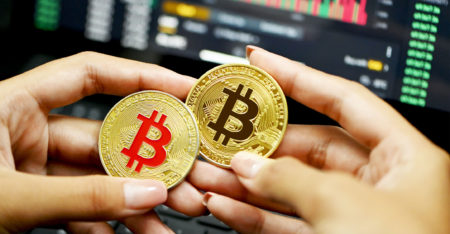 Bitcoin, the world’s biggest cryptocurrency, fell as much as 14% to US$51 541 on Sunday, reversing most of the big gains it made over the past week.
Bitcoin, the world’s biggest cryptocurrency, fell as much as 14% to US$51 541 on Sunday, reversing most of the big gains it made over the past week.
Data website CoinMarketCap cited a blackout in China’s Xinjiang region, which reportedly powers a lot of bitcoin mining, for the selloff.
Luke Sully, CEO at digital asset treasury specialist Ledgermatic, said in an e-mail that people “may have sold on the news of the power outage in China and not the impact it actually had on the network”.
“The power outage does expose a fundamental weakness; that although the bitcoin network is decentralised, the mining of it is not,” Sully added.
Some widely followed blockchain analysts on Twitter pointed to a sharp drop in “hash rate” due to the outage. Hash rate refers to the volatility index that measures the processing capacity of the entire bitcoin network, and it determines the power required by miners to produce new bitcoins.
Hash rate
“Typically shocks to hash rate do not cause price drops. A hash rate reduction slows transactions, which ironically makes it harder to move coins to exchanges for sale. The recent price drop is well within the bounds of typical volatility, it is noise not signal,” said Edan Yago, co-founder at bitcoin-based decentralised finance protocol Sovryn.
The retreat in Bitcoin also comes after Turkey’s central bank banned the use of cryptocurrencies for purchases on Friday.
Edward Moya, senior market analyst at OANDA, said cryptocurrencies had been ripe for a pullback. “The market has become overly aggressive and bullish on everything,” said Moya. “It could have been any bearish headline that could have triggered this reaction.”
 Many cryptocurrency markets operate 24/7, setting the stage for price swings at unpredictable hours. Historically, retail and day traders have driven the moves.
Many cryptocurrency markets operate 24/7, setting the stage for price swings at unpredictable hours. Historically, retail and day traders have driven the moves.
Despite the sudden selloff, bitcoin is still up 89% so far in 2021, driven by its mainstream acceptance as an investment and a means of payment, accompanied by the rush of retail cash into stocks, exchange-traded funds and other risky assets. — Reported by Radhika Anilkumar and Thyagaraju Adinarayan, with additional reporting by Ira Iosebashvili, (c) 2021 Reuters




